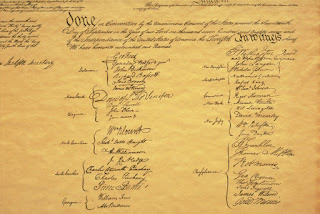This observance to the U.S. Constitution emphasizes the bravery and sacrifice of our founding fathers, the signers of the document. But it’s always overlooked by most American citizens because it’s not a federal holiday; the country’s population doesn’t get a mandated day off work.
The official observance of the important date goes back to the 1939 New York World’s Fair. It was called “I am an American Day” with the slogan displayed throughout the New York celebration. Print media, radio programs and early broadcasts by television networks promoted the slogan. By 1949, governors of all 48 states issued proclamations that gave credibility to the observance that provided recognition to natural born citizens as well as people who become citizens.
The U.S. Congress renamed it “Citizenship Day” on February 29, 1952, and made it officially recognized by the federal government. September 17th was named the official date. The new name downplayed the importance of the time in history that signaled the adoption of the U.S. Constitution; the observance became more orphan-like in its lack of interest by the citizenship.
 Finally, in 2004 a federal amendment to a spending bill renamed it “Constitution Day and Citizenship Day.” The new law mandated that publicly funded educational institutions provide programming about the American Constitution every Sept. 17th. If the date falls on a weekend or other holiday, the next school day will be used. One year later, the Department of Education modified the law so that it would apply to all schools receiving any federal funds.
Finally, in 2004 a federal amendment to a spending bill renamed it “Constitution Day and Citizenship Day.” The new law mandated that publicly funded educational institutions provide programming about the American Constitution every Sept. 17th. If the date falls on a weekend or other holiday, the next school day will be used. One year later, the Department of Education modified the law so that it would apply to all schools receiving any federal funds.
“Constitution Day and Citizenship Day” is an important part of the cultural heritage of the United States of America. It recognizes the value of the American heritage that allows the success of a nation of free people to have their rights and liberties protected by a written constitution.
Thanks for reading this blog. Please see my website at www.joevlatino.com.

